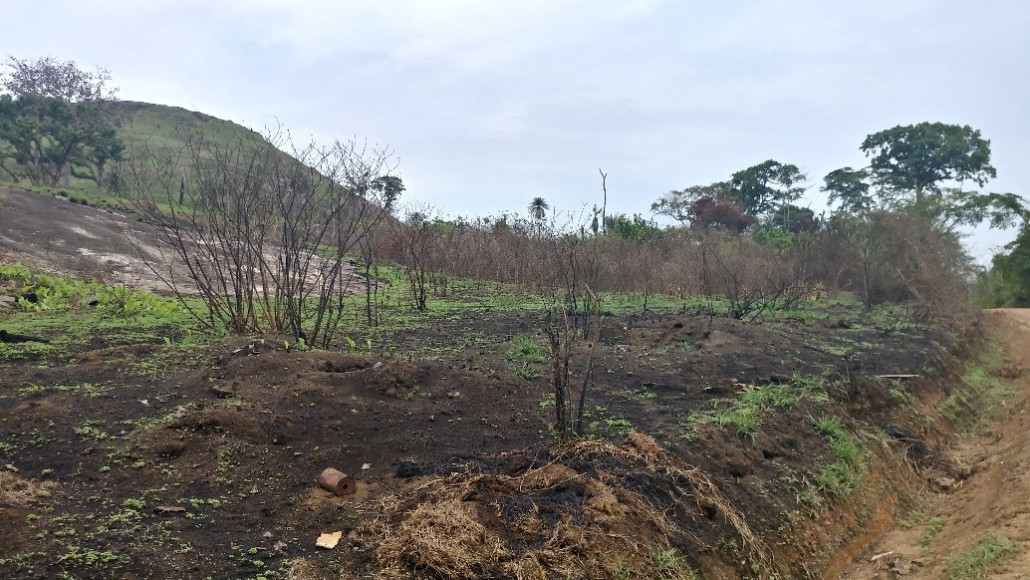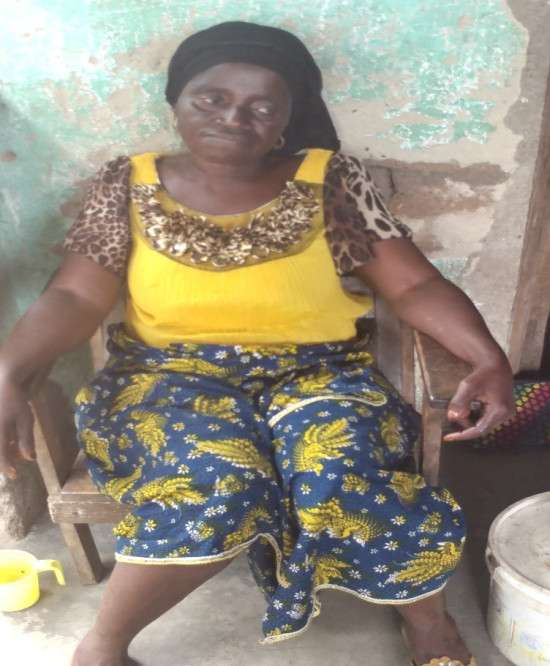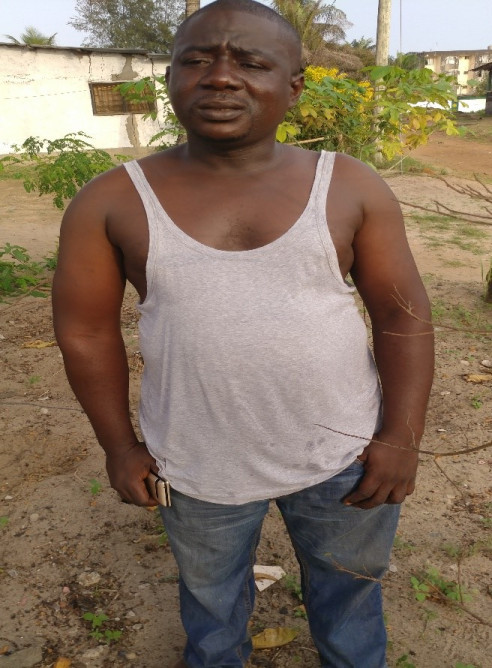MamadeeKelledue, Lofa County – Fatuma Kamara, turned to gardening, planting plantains, cassavas and bananas after her husband died more than three decades ago. Her garden prospered. Proceeds from the garden did not only feed her family but left her with enough money to save and pay her children’s tuition. It seemed her dream of becoming one of Liberia’s biggest businesswomen was fast becoming a reality. But a land dispute between Sarmodu—the clan where her village Mamadeekelledue is located in the Quardo-Boni District—and Selega in Voinjama District next door means Kamara cannot continue to plant her crops.
Sitting on the porch of her thatch hut wearing a grim expression, the 52-year-old mother of three says her dream to become a successful businesswoman has now been reduced to a daily struggle to make ends meet. She says she borrowed money from a saving club in her village and set up a table market, but her children are not in school because she cannot afford LD 7,500 for tuition. Her brothers, who had helped her support the family, died recently.
“I am sick and tired catching hard time,” Kamara laments. “Doctors at the Tellewayon Hospital have informed me that I have developed pressure. Things have gone so bad for me and my three kids. I am confused and frustrated, and don’t know what to do,” she says.
Kamara is one of many people from both Sarmodu and Selega who are directly affected by the land dispute, because their farms and gardens are on the disputed boundary between the two towns. They cannot continue with their farm and garden because the government imposed a moratorium on the disputed portion of land in September 2018.
Land serves as a major source of survival for thousands of dwellers in Liberia’s rural communities like Sarmodu and Selega that depend heavily on farming and petit trade. In 2014, a report released by the International Fund for Agricultural Development (IFAD) found that an estimated 51 percent of Liberia’s population lives in poor, rural areas, and 55 percent of rural Liberian households are what international organizations call “food insecure” – uncertain that the next meal will continue to be available.
Land conflicts have disrupted and impeded farming activities, the source of livelihoods in rural communities. A July 2015 report by Global Witness, the international resources watchdog, found that land-related violence is a major threat to Liberia’s post-conflict peace and security accounting for at least forty 40 percent of conflicts in postwar Liberia.
Like Kamara, Milton Zoweh, an agriculturist based in Selega on the other side of the dispute, has also been affected. Zoweh lost the cocoa farm he had spent over US$3,000 to plant and saw over 3,500 of the plants in his nursery damaged in the land dispute.

“I have sleepless nights these days since the government imposed the moratorium,” says Zoweh. “I have lost my entire cocoa farm. My entire business has collapsed. I am finished.”
Sarmodu and Selega claim different boundaries between them. Selega—made up predominantly of Lormas—claims that a forested portion of land they call Bailai, a long stretch of rocky forestland, is the legitimate boundary between the Voinjama and Quardu-Boni Districts. But Sarmudo, a Mandingo clan, claims that the legitimate boundary is Red Hill, a portion of forested land with red earth after Bailai.
“According to the 1936 document that our forefathers left with us, Baibai is the original boundary between Voinjama and Quardu-Gboni Districts,” says Zuba Jallah, Selega’s Town Chief. “I think our nephews (Mandingoes) are encroaching on our land because they have finished their part of the land,” he says, adding, “We will not allow it.”
Janga Foday Balloh, Sarmodu’s Chief Elder disagrees. “When the Quardu and Gboni chieftains decided to come together to form Quardu-Gboni, separating Lormas from us…there was another demarcation that showed that Red Hill is the actual boundary between us,” says Chief Elder Balloh.
Elder Balloh also acknowledges the existence of the 1936 document Chief Jallah speaks of, but claims the document is not legitimate.
Local officials say they have heard both sides of the conflict but are finding an amicable solution, adding that findings are due soon.
“We’ll mediate, and we are not going to litigate or arbitrate in this case because both groups have lived together for centuries,” says William Tamba Kamaba, Superintendent of Lofa County.
Boundary harmonization is a crucial part of Liberia’s 2018 Land Rights Law, hailed across the world for recognizing customary land rights as well as women’s rights to land ownership. However, under the law, communities like Sarmodu and Selega must solve their boundary disputes with their neighbors, among other things, before getting deeds for their lands.
J. Adams Manobah, the Acting Chairman of the Liberian Land Authority (LLA) says Sarmodu and Selega meeting those requirements will be the key to the solution of their dispute, but the communities must first be aware of the new law.
“What we have decided to do now is to identify the trouble spot and demarcate the boundary between the two groups,” Manobah says. “We will do that as soon as the investigation is concluded,” he adds. “We are also asking the government to help us with resources in order to carry out a nationwide awareness on this law.”
Rural communities are not aware of the law and lack capacity to benefit from it, experts say. As well as boundary harmonization, the law mandates communities self-identify their land, conduct survey for instance establishing their land development and management committees and a land use plan before getting their deeds.
Three civil society groups—the Foundation for Community Initiatives (FCI), Parley Liberia and the Sustainable Development Institute (SDI)—recently launched a nearly US$2 million project to help communities complete the steps to legalize their lands. Ali Kaba, head of the Community Land Rights Protection program of the SDI says his group was considering Quardu-Boni and Voinjama.
“We are aware of the adverse effects that this conflict has had on the livelihood of the people. The impact of the dispute is weighing heavy on the communities. The situation is graved-but the SDI and partners will shortly intervene to address it.”
Back in Mamadeekelledue, Kamara is growing more impatient every day.
“It’s been too long for this land palaver to be settled. It keeps moving back and forth. I expect the government to lift the moratorium soon. My prayer is to see that happening quickly,” Kamara tells the Liberian Network.
This story was a collaboration with Liberian Network as part of the Land Rights and Climate Change Reporting Project. Funding was provided by the American Jewish World Service. The Funder had no say in the story’s content.



